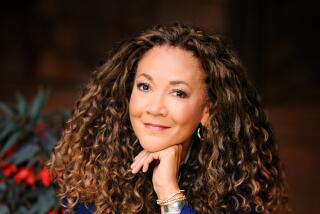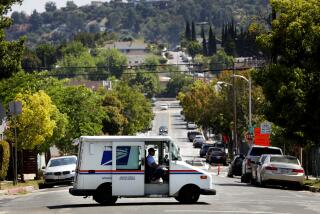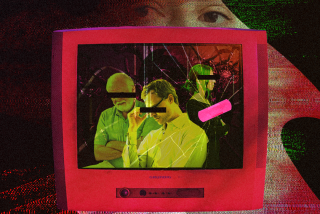Community Essay : ‘PC Is Stifling Racial Dialogue’ : A white man who’s felt racism abroad asks why political correctness excludes him from discussions of race in America.
- Share via
I have been refused service in restaurants because of the color of my skin. I have been stopped by police for walking around certain neighborhoods at night and acting “suspicious” (as in not being the right ethnicity for that particular neighborhood). I have been denied housing because of my race. I was banned from competing in certain sporting events. The official stated reason? My skin color.
My girlfriend’s parents were horrified to learn that their daughter was involved with me--it was a racial scandal that became a source of shame for the family and led to threats of punishment for her.
I have had unsmiling clerks follow me through stores, giving me “special” service, reminding me to put my groceries in my shopping basket, not in my pockets.
I have sat on buses so crowded that they that were almost overflowing--except for the empty seats on either side of me. People didn’t like to sit next to my kind. Hollywood has taught them that we have quick tempers and a penchant for violence.
You don’t have to search for a photo with this column. I am white. I had these experiences during the three recent years I was an extreme minority, living and teaching in rural Japan.
I don’t pretend to equate these experiences with the racism some minorities in America face from the day they are born. I don’t pretend to fully understand how growing up under such conditions affects one’s self-image and view of the world. I list these examples of my experiences only in anticipation of those who will say, “He is white. He knows nothing about racism.” I have been told this several times since last year’s riots: “You’re white. You can’t understand.”
I usually respond just by saying, “You don’t know everything about me,” and leave it at that.
But I wonder. Why does my skin color, in some people’s eyes, preclude me from any discussion on racism?
During the last year, discussion of the state of race relations in post-riot L.A. reached Orwellian extremes at times. Civil unrest became the accepted euphemism for street thugs bashing victims’ skulls, looting the local liquor store, then torching the neighborhood.
I was told by an African-American woman that there were no “riots,” there was an “uprising.” When she told me this, I hid my shock poorly behind an uncomfortable smile, but later, when I thought about it, I was angered. Calling the worst riots in modern American history an uprising strikes me as ludicrous. It’s linguistically revisionist. Relabeling lends these acts of violence an air of political legitimacy I don’t think they deserve.
The people I saw on television carrying cases of beer out of burned-out liquor stores did not strike me as political activists. It seemed the riots were less an opportunity to vent some intense political viewpoints than a chance to go out and get wild.
In the 1990s, political correctness seems to be as important to embrace as it was to denounce communism in the 1950s. It’s politically correct to be politically correct --I have made a sincere effort to adapt my vocabulary to this evolving “correctness.” I know Asians are no longer Orientals and gays are no longer homosexuals. I don’t say “handicapped” anymore, but I haven’t been able to figure out the latest “correct” term, either. I don’t think it’s “disabled.” Differently abled? Physically challenged?
Some of the same people who have asked me to stop labeling them by color--I’ve been told there are no blacks, there are only African-Americans--have, in the same conversation (and without a hint of irony), lumped me into a category with all “whites.” They are my African-American friends, but I am not their European-American friend.
“PC-ness” adopts an even more insidious aura when you try to accommodate those who still prefer black, and there are some. How do you avoid offending someone? The term African diaspora has been suggested as a term for all black people, but at what point does that become the acceptable phrase? How do you discuss racial issues with a crippled vocabulary?
Words have tremendous power to inform the way we think. This obsession with political correctness, however, is stifling the intellectual tools necessary for meaningful dialogue.
There is so much to do to improve race relations these days that it seems silly to get hung up on labels. We seem to stumble on the words that should be starting conversations. Sometimes these stumbles prevent us from getting further along in the conversation, to some of the other, perhaps more important, words: equality, education, jobs, peace.
More to Read
Sign up for Essential California
The most important California stories and recommendations in your inbox every morning.
You may occasionally receive promotional content from the Los Angeles Times.










